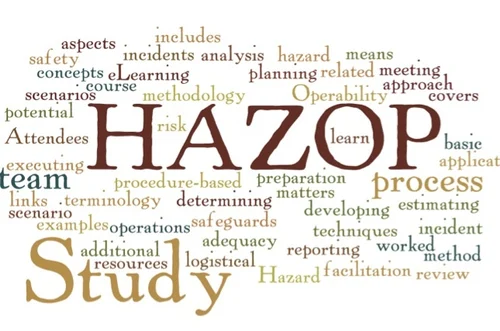Future Trends in Hotel Management Industry

The hotel management industry is growing fast and changing with time. With new technologies, shifting customer preferences, and increased focus on sustainability, the future of hotel management looks very exciting. To stay ahead, hotels need to adapt to these trends and improve their services to meet customer expectations. Here are some of the major trends shaping the future of the hotel management industry.
1. Increased Use of Technology
Technology is transforming the hotel industry in many ways. From online bookings to smart room controls, hotels are using advanced technology to improve customer experiences. Many hotels now use artificial intelligence (AI) to provide personalized services to guests. Chatbots help answer customer queries quickly, while automated check-in systems reduce waiting time at reception. Virtual reality (VR) is also being used to give customers a preview of the hotel and its facilities before booking.
Hotels are also investing in smart room technologies, where guests can control lights, air conditioning, and entertainment systems using their smartphones. This not only improves convenience but also enhances the overall guest experience. To stay relevant in this changing environment, students learning hotel management at the Best Hotel Management College in Kota are being trained in modern technologies to prepare them for the future.
2. Focus on Sustainability and Eco-Friendly Practices
Sustainability is becoming an essential part of the hospitality industry. Hotels are now adopting eco-friendly practices such as using energy-efficient appliances, reducing plastic waste, and promoting water conservation. Many hotels are also focusing on using locally sourced food and reducing their carbon footprint.
Guests today prefer hotels that follow sustainable practices, and many are willing to pay more for an environmentally responsible stay. To meet these expectations, hotels are introducing green initiatives like paperless check-in, smart energy systems, and recycling programs. Understanding these trends is crucial for students pursuing the Best Hotel Management Courses in Kota, as sustainability will be a key focus in future hotel operations.
3. Personalized Guest Experiences
Guests today expect a more personalized experience during their stay. Hotels are using data analytics and customer preferences to offer tailored services. From customizing room settings to recommending local attractions, personalized services make guests feel more valued.
Loyalty programs are also becoming more advanced, allowing hotels to offer unique rewards and special offers based on a guest’s previous stays. By understanding customer behavior, hotels can create memorable experiences that encourage guests to return. Future hotel managers studying at AHA Kota are learning how to use data to offer these customized services, ensuring that they stay ahead in the competitive industry.
4. Rise of Contactless Services
The COVID-19 pandemic accelerated the adoption of contactless services in the hospitality sector. Guests now prefer minimal physical contact during their stay, and hotels are adapting to this change. Contactless payments, keyless room entry, and digital check-in and check-out have become the norm.
Hotels are also introducing mobile apps that allow guests to order room service, schedule housekeeping, and communicate with hotel staff without face-to-face interaction. These contactless services not only enhance safety but also improve the overall guest experience. Future hotel professionals studying at the Best Hotel Management College in Kota are being trained to manage and improve such systems.
5. Growth of Online Reviews and Reputation Management
In today’s digital age, online reviews play a significant role in a hotel’s success. Guests often check online ratings and reviews before making a booking decision. Positive reviews help attract more customers, while negative feedback can harm a hotel’s reputation.
To manage their online reputation, hotels are investing in advanced reputation management software. These tools help track reviews, respond to customer feedback, and make improvements based on guest suggestions. Understanding how to manage online reviews effectively is an important skill for students enrolled in the Best Hotel Management Courses in Kota.
6. Emphasis on Health and Wellness Services
Health and wellness have become a top priority for travelers. Many guests prefer hotels that offer fitness centers, yoga classes, spa treatments, and healthy food options. Hotels are now focusing on creating wellness programs that promote relaxation and healthy living.
In addition, hotels are paying attention to hygiene and cleanliness standards to ensure the safety of their guests. Enhanced cleaning protocols and sanitization measures are now a permanent part of hotel operations. Future hotel managers trained at AHA Kota understand the importance of maintaining high hygiene standards to provide a safe and healthy environment for guests.
7. Increased Demand for Experiential Travel
Travelers today are looking for unique and memorable experiences during their trips. Experiential travel focuses on providing guests with opportunities to explore local culture, cuisine, and traditions. Hotels are now offering customized experiences such as guided tours, local cooking classes, and adventure activities to meet this growing demand.
To meet these expectations, hotels need to build strong connections with local communities and offer authentic experiences. Understanding the importance of experiential travel is key for students pursuing courses at the Best Hotel Management College in Kota.
8. Expansion of Alternative Accommodation Options
Alternative accommodation options like homestays, serviced apartments, and vacation rentals are becoming popular among travelers. Many travelers now prefer staying in unique and private spaces that offer a homely environment.
Hotels are responding to this trend by introducing flexible booking options and offering a variety of stay experiences. This trend highlights the importance of innovation and adaptability in the hotel management industry. Students enrolling in the Best Hotel Management Courses in Kota are being prepared to handle the changing demands of modern travelers.
9. Increased Focus on Staff Training and Development
The hospitality industry relies heavily on well-trained staff to deliver exceptional service. As customer expectations continue to rise, hotels are focusing more on staff training and development.
From communication skills to technical knowledge, hotels are investing in regular training programs to ensure that their staff can meet modern guest expectations. Future hotel managers trained at AHA Kota are equipped with the necessary skills to manage and lead teams effectively.
10. Greater Emphasis on Safety and Security
Safety and security are becoming top concerns for guests. Hotels are now using advanced surveillance systems, biometric access controls, and emergency response plans to ensure the safety of their guests and staff.
Future hotel managers need to stay informed about the latest security technologies and protocols. This focus on safety is essential to maintain guest trust and satisfaction.
Conclusion
The future of the hotel management industry is shaped by innovation, sustainability, and personalized guest experiences. As technology continues to advance and customer expectations evolve, hotels must stay adaptable and embrace these changes. For aspiring hotel managers, gaining knowledge and hands-on experience from the Best Hotel Management College in Kota and learning the latest trends through the Best Hotel Management Courses in Kota will be essential to thrive in this dynamic industry.







